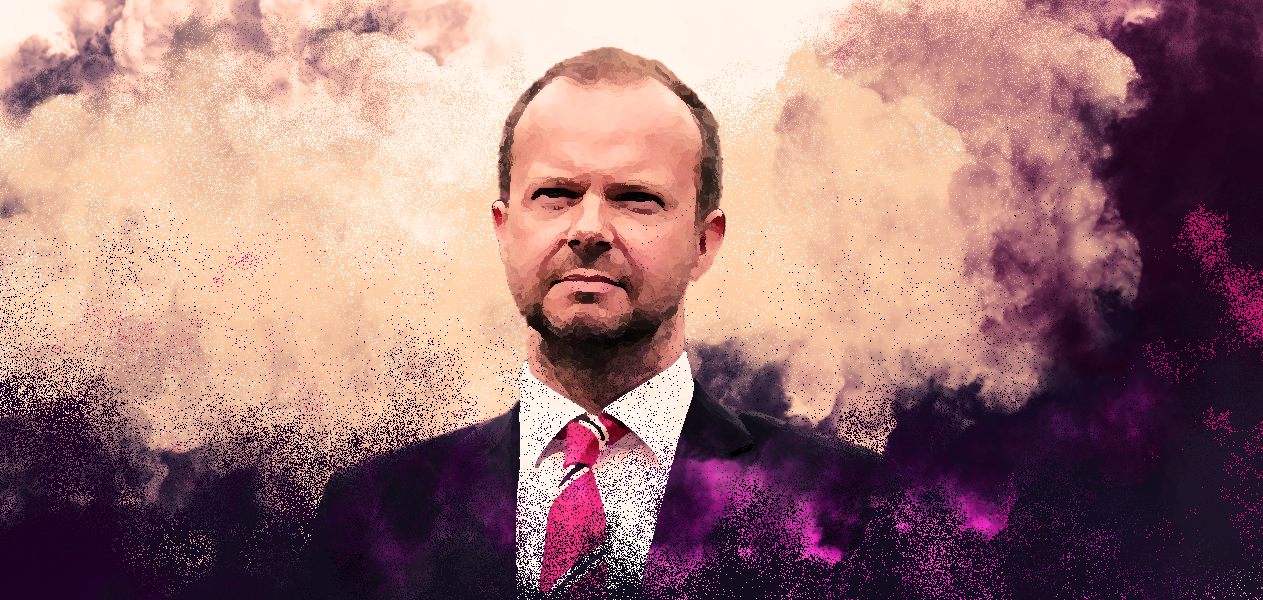Ed Woodward set to leave Manchester United. What now?
The 49-year-old has been a part of the club since 2005 and became their executive vice-chairman in 2012.
Last week, as the bombshell that was the Super League continued to loom large on the football community, it muffled a few announcements that would otherwise have made a lot of noise. One such announcement was the resignation of Ed Woodward as Manchester United’s executive vice-chairman.
The announcement came whilst the Super League was in the middle of disintegrating itself. In the wake of the breakaway league’s announcement, Woodward also left his role at UEFA; he served on their Professional Football Strategy Council since September 2017.
Unsurprisingly, Woodward’s resignation has been subject to massive speculation. While people close to the club insist that his departure was imminent and had been agreed for a while, the timing of its announcement with respect to the events that immediately preceded it is too good to just be a coincidence. Others say it is because Woodward was sincerely affected by the backlash over the Super League, but that is hard to take in given he was one of the main figures in the league’s inception from the get-go.
There is, however, some truth to that. We have seen over the past week that for all their might and money, the owners of the breakaway clubs had very little estimation of the revolt their plan would instigate. This was a plan reportedly years in the making, so when Woodward saw the whole thing implode inside 48 hours, it is of little surprise that he felt he could no longer associate himself with the project and by extension, Manchester United.
The steps that were taken in the dark to bring the Super League to light have burned many bridges in the past few days. Woodward’s resignation is likely to be followed by that of many others across different clubs.
Woodward’s association with the Glazers, United’s infamous owners, began in sincerity when he helped them execute a leveraged buyout of the club in 2005. Since the very beginning, he had the Glazers’ trust and held their interests at heart, two things that were crucial in landing him the role of executive vice-chairman of the club in 2012.
Ed Woodward’s tenure as Manchester United’s executive vice-chairman has been a mixed bag. While his lack of understanding of the game – and an obstinacy to appoint someone who does – has seen United become a subpar team post Sir Alex Ferguson’s retirement despite over £1bn put into squad reinforcement, his business acumen has helped United not only remain but grow as a global commercial giant despite their mediocrity. He has made his fair share of mistakes, but given the nature of player acquisitions since last season and recent directorial appointments, one could say things were finally starting to look somewhat up for Ed. Alas, it all came a bit too late.
Woodward’s resignation has thrown United’s immediate future into disarray. While the announcement of his resignation states that he will leave at the end of 2021, many believe he is more likely to leave by the end of this season. He is also said to be responsible for appointing his successor, and while United fans would love to have Edwin van der Sar, currently the chief executive of AFC Ajax, it is more likely that the appointment will be made internally, with the current favourite being Richard Arnold, currently the Group Managing Director of the football club, and Company Director of Manchester United PLC, who has maintained a professional relationship with Woodward for nearly three decades.
There are also reports suggesting that John Murtough, United’s recently appointed football director, is already at the risk of losing his job. The recent directorial appointments of Murtough and Darren Fletcher were the first steps in establishing a football-driven structure at the club. If Woodward does leave in the summer, we could see a lot of haphazard decisions made, further putting in jeopardy the club’s plans for squad reinforcement in the summer.
Verdict
Does Ed Woodward’s departure signal the end of the collective misery of United’s fans? Not in the slightest. For all his faults he was, at the end of the day, a propeller of his employers’ interests. As long as the Glazers own Manchester United, the keys to the kingdom will be held by someone loyal to them and their plans.
The Glazers’ interest in Manchester United, however, could indeed be wavering. There is no doubt that the idea of a closed shop league would have been in their minds from the moment they acquired United sixteen years ago. After Sir Alex, they must have realised furthermore that success is not guaranteed in this game, and hence neither is the money. The owners of Manchester United and Liverpool were the main brains behind the Super League. It was their magnum opus, the master plan to finally take their commodities to the promised land of guaranteed revenue. To have their years-long plan obliterated within hours must have proved them for once and all that there is a limit to how much they can try changing the game before the game hits back.
Of course, the Glazers have only just broke even on their initial investment into the club, so it is unlikely that they’ll willingly part ways anytime soon, not unless someone comes in with the widely-reported £4bn to get them listening, which is in turn highly unlikely. Nevertheless, as United fans reignite their interest in demanding the Glazers to leave, it is to be noted that we might have just witnessed the beginning of the end of their time at the club.

